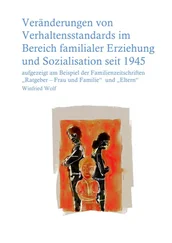Winfried Sebald - Vertigo
Здесь есть возможность читать онлайн «Winfried Sebald - Vertigo» весь текст электронной книги совершенно бесплатно (целиком полную версию без сокращений). В некоторых случаях можно слушать аудио, скачать через торрент в формате fb2 и присутствует краткое содержание. Год выпуска: 2001, ISBN: 2001, Издательство: New Directions, Жанр: Современная проза, на английском языке. Описание произведения, (предисловие) а так же отзывы посетителей доступны на портале библиотеки ЛибКат.
- Название:Vertigo
- Автор:
- Издательство:New Directions
- Жанр:
- Год:2001
- ISBN:978-0811214858
- Рейтинг книги:4 / 5. Голосов: 1
-
Избранное:Добавить в избранное
- Отзывы:
-
Ваша оценка:
- 80
- 1
- 2
- 3
- 4
- 5
Vertigo: краткое содержание, описание и аннотация
Предлагаем к чтению аннотацию, описание, краткое содержание или предисловие (зависит от того, что написал сам автор книги «Vertigo»). Если вы не нашли необходимую информацию о книге — напишите в комментариях, мы постараемся отыскать её.
Vertigo
The Emigrants
The Rings of Saturn
The New York Times Book Review
The Emigrants
Vertigo — читать онлайн бесплатно полную книгу (весь текст) целиком
Ниже представлен текст книги, разбитый по страницам. Система сохранения места последней прочитанной страницы, позволяет с удобством читать онлайн бесплатно книгу «Vertigo», без необходимости каждый раз заново искать на чём Вы остановились. Поставьте закладку, и сможете в любой момент перейти на страницу, на которой закончили чтение.
Интервал:
Закладка:
I had spent the better part of a month, till the beginning of December, in W., and for more or less the entire time I had been the only guest at the Engelwirt inn. Only occasionally did one of those solitary commercial travellers appear, who spend the evenings in the bar room finishing off their day's work, calculating percentages and rates of commission. As I too was forever bent over my papers, they may well, at first, have taken me for another salesman but, after a closer look at my outward appearance, they probably decided that mine was a different and perhaps more dubious profession. Disturbed not so much by this scrutiny as by the first preparations that were being made in the house for the beginning of the winter season, I resolved to leave, particularly as my writing had reached the point at which I either had to continue for ever or break off. The following day, after changing several times and spending lengthy periods waiting on the platforms of draughty provincial stations — I cannot remember anything about this journey other than the grotesque figure of a middleaged chap of gigantic proportions who was wearing a hideous, modishly styled Trachten suit and a broad tie with multi-coloured bird feathers sewn onto it, which were ruffled by the wind — on that day, with W. already far behind me, I sat in the Hook of Holland express travelling through the German countryside, which has always been alien to me, straightened out and tidied up as it is to the last square inch and corner. Everything appeared to be appeased and numbed in some sinister way, and this sense of numbness soon came over me also. I did not care to open the newspapers that I had bought, or to drink the mineral water that was there before me. Stretches of grassland swept past on either side and ploughed fields in which the pale green winter wheat had emerged according to schedule; neatly delineated fir-tree plantations, gravel pits, football pitches, industrial estates, and the ever-expanding colonies of family homes behind their rustic fences and privet hedges, all of them painted in that slightly greyish shade of white which has become the preferred colour of the nation. As I looked out, it made me uneasy that not a soul was to be seen anywhere, though enough vehicles were speeding along the wet roads veiled in dense mists of spray. Even in the streets of the towns, there were far more cars than people. It was as if mankind had already made way for another species, or had fallen under a kind of curfew. The silence of my fellow passengers sitting motionless in the air-conditioned express carriage did nothing to dispel such conjectures, but as I looked out at the passing landscape which had been so thoroughly parcelled up and segmented, the words "south-west Germany", "south-west Germany" were running over and over in my mind, till after a couple of hours of mounting irritation I came to the conclusion that something like an eclipse of my mental faculties was about to occur.
The compulsive fixation did not wear off until the train pulled into Heidelberg station, where there were so many people crowding the platforms that I feared they were fleeing from a city doomed or already laid waste. The last to come into my compartment of those passengers who had just boarded was a young woman wearing a beret of brown velvet whom I instantly recognised, without a shadow of a doubt, as Elizabeth, daughter of James I, who according to the chronicles travelled to Heidelberg as the bride of the Elector Palatine and, during the short period in which she held court there in great splendour, became known as the Winter Queen. No sooner had she sat down and settled herself into her corner than this young woman was deeply immersed in a book entitled The Seas of Bohemia, written by an authoress unknown to me by the name of Mila Stern. Only when we were travelling alongside the Rhine did she occasionally look up from her reading and glance out through the window at the river and the steep slopes of the opposite bank. A stiff northerly wind must have sprung up, because the flags on the barges that were ploughing their way upstream through the grey waters were not flying backwards from the stern but forwards, as in a child's drawing, and this lent the scene something that was at once touching and awry. The light outside had steadily diminished, and the great river valley was now filled with a faint luminescence. I stepped out into the corridor. The slate- and violet-coloured vineyards, hatched into the hillsides, were covered here and there with turquoise bird-netting. Snow now began to drift by, scoring delicate slanting lines over a view which was constantly changing as we slid past yet always remained the same. Suddenly I felt we were on our way to the far north, approaching the furthermost tip of the island of Hokkaido. The Winter Queen, who I believed had brought about this transformation of the Rhine landscape, had also come out into the corridor, and had already been standing watching the beautiful scene for some time at my side before I heard her reciting, entirely to herself, as it seemed to me, the following lines, with a long-lost inflexion in her voice:
Grasses white as driven snow
Veils far blacker than a crow
Gloves as tender as the rose
Masks for faces no one knows.
That I did not know what to respond at the time, did not know how this winter verse continued, and, despite the feelings within me, could not say a word but merely stood there stupid and mute, looking out onto a world that was now almost gone in the fading twilight, is something which, since that day, I have often much regretted. Presently the Rhine valley opened out, gleaming apartment blocks appeared on the plain, and the train drew into Bonn, where the Winter Queen, without my having been able to say even a word to her, got out. Time and again since then, I have attempted to find that book, The Seas of Bohemia, but though it is undoubtedly of the greatest importance for me, it is, alas, not listed in any bibliography, in any catalogue, or indeed anywhere at all.
The following afternoon, back in London, my first port of call was the National Gallery. The painting by Pisanello that I wanted to see was not in its usual place, but owing to renovation work had been hung in a poorly lit room in the basement into which few of the visitors who wandered the gallery every day found their way. It is a small painting, measuring about 30 by 50 centimetres, lamentably imprisoned in a far too heavy Victorian frame. The upper half of the picture is almost completely filled by a golden disc, radiant against the blue of the sky and serving as a background for the Virgin and her Redeemer Child. Lower down runs a line of dark green treetops from one side to the other. On the left stands the patron saint of herds, herdsmen and lepers, St Anthony. He is wearing a dark red cowled habit and a capacious earthen-brown cloak. In his hand he holds a bell. Beside him lies a tame boar, close against the ground in kindly submission. The hermit with a stern expression surveys the shining knight who stands before him, and who, for his part, is all of this world, almost heart-rendingly so. The dragon, a ringed and winged creature, has already breathed its last. The ornate armour, wrought of white metal, draws the evening light unto it. Not the slightest shadow of guilt shows on the youthful face of St George. His neck and throat are bared to us, unprotected. The most remarkable feature, however, is the very finely worked broad-brimmed straw hat adorned with a large feather which the knight wears on his head. I wish I could know how Pisanello conceived the idea of furnishing St George with such inappropriate and positively extravagant headgear. San Giorgio con cappello di paglia — most odd indeed, as the two trusty horses gazing across the knight's shoulder may well be thinking too.
Читать дальшеИнтервал:
Закладка:
Похожие книги на «Vertigo»
Представляем Вашему вниманию похожие книги на «Vertigo» списком для выбора. Мы отобрали схожую по названию и смыслу литературу в надежде предоставить читателям больше вариантов отыскать новые, интересные, ещё непрочитанные произведения.
Обсуждение, отзывы о книге «Vertigo» и просто собственные мнения читателей. Оставьте ваши комментарии, напишите, что Вы думаете о произведении, его смысле или главных героях. Укажите что конкретно понравилось, а что нет, и почему Вы так считаете.












